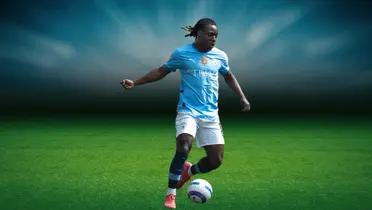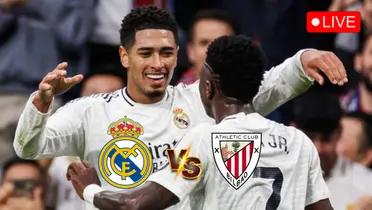The greatest achievements of Maradona in the world of football
Discover all the achievements Diego Armando Maradona left in the world of football: his greatest moments in history.

Diego Armando Maradona, born on October 30, 1960, in Lanús, Argentina, is considered one of the most iconic and talented footballers in the history of world football. His skill with the ball, charisma on the pitch, and ability to overcome adversity made him an immortal figure in the beautiful game. Throughout his career, Maradona achieved feats that not only left a mark on stadiums but also in popular culture, cementing him as an eternal icon.
Maradona began his professional career at Argentinos Juniors, a modest team with a rich tradition in developing young talent. His debut on October 20, 1976, at just 15 years old, marked the start of a meteoric rise. From the beginning, his technical skill and ability to dribble past opponents set him apart as a unique player. At Argentinos, he not only established himself as a starter but also became the top scorer in the Argentine championship for five consecutive seasons, an unprecedented feat for someone his age.
The leap to greatness with Boca Juniors
In 1981, Maradona joined Boca Juniors, one of the most important clubs in Argentina. With this team, he won the 1981 Metropolitano Championship, delivering memorable performances that remain etched in the memory of Boca fans. Despite his brief stint at Boca, his impact was significant, demonstrating that he was ready to take the leap to European football, where even greater challenges awaited him.

The European journey: From Barcelona to glory in Napoli
The bittersweet experience at FC Barcelona
After the 1982 World Cup in Spain, Maradona became the most expensive transfer in history when he moved to FC Barcelona. Although he showcased flashes of his talent and won titles such as the Copa del Rey, Copa de la Liga, and the Spanish Super Cup in 1983, his time at the Catalan club was marked by injuries and conflicts with management. Nevertheless, he left unforgettable moments, such as his performance in the classic match against Real Madrid at the Santiago Bernabéu, where he received applause from the opposing fans—an honor reserved for very few players.
The pinnacle of his career at SSC Napoli
In 1984, Maradona arrived at Napoli, a club from southern Italy that had never won a league championship. Diego not only became the undisputed leader of the team but also transformed the club into a powerhouse of Italian football. With Maradona, Napoli won two Serie A titles (1986/87 and 1989/90), a Coppa Italia (1987), a Supercoppa Italiana (1990), and a UEFA Cup (1989). Beyond the trophies, his impact on the city of Naples was profound, becoming a symbol of hope for a historically marginalized region in Italy.

Maradona and the Argentine national team: immortal feats
The youth triumph in 1979
Before shining with the senior national team, Maradona led the Argentina U-20 team to victory in the 1979 FIFA World Youth Championship in Japan. During the tournament, he displayed immense talent and was named the best player as Argentina claimed the title. This achievement foreshadowed what would come in his international career.
The 1986 World Cup: the peak of his career
The pinnacle of Maradona's career came at the 1986 World Cup in Mexico. As captain of the Argentine national team, he led them to their second world title. His performance in the tournament is considered one of the greatest in football history. In the quarterfinal match against England, Diego scored two of the most iconic goals ever: the controversial "Hand of God" goal and the "Goal of the Century", an extraordinary solo effort where he dribbled past five opponents before scoring. These performances earned him the tournament's Golden Ball and solidified his place among the all-time greats.
Recognitions and distinctions
Individual awards
Maradona received numerous awards throughout his career. In 1995, he was honored with the "Master Inspirator" by the University of Oxford, recognizing his influence on sports and culture. In 2000, FIFA named him the best player of the 20th century in a fan vote. Although he shared this honor with Pelé in an official decision by FIFA, the public overwhelmingly favored Maradona.
An eternal legacy
Maradona's impact goes beyond trophies and individual accolades. His playing style, characterized by creativity, bravery, and passion, inspired generations of footballers. Additionally, his persona transcended sports, becoming a cultural icon and a symbol of struggle for the underprivileged. In Argentina, his influence rivals that of historical figures, with some even venerating him as a deity.

Maradona in popular culture
Maradona's legacy extends beyond football fields. He was the subject of countless documentaries, films, and songs celebrating his life and career. One of the most notable examples is the documentary Diego Maradona directed by Asif Kapadia, which explores the highs and lows of his life both on and off the pitch. His charisma and authenticity made him a beloved yet controversial figure.
His influence on modern football
Even after his passing on November 25, 2020, Maradona remains a reference point in football. His legacy lives on in players who consider him an inspiration, such as Lionel Messi and other great talents who grew up admiring him. His name is synonymous with moments of magic in football, reminding the world of the sport's beauty and artistry.
Conclusion: an immortal idol
Diego Armando Maradona was more than a footballer; he was a cultural phenomenon and a symbol of passion and resilience. From his beginnings in Argentina to his triumphs in Europe and his feats with the national team, Maradona left a legacy that remains alive in the hearts of millions. His impact on football and society transcends generations, and his name will continue to resonate as a synonym for greatness.
More news

Preview and U.S. Broadcast Guide Manchester City vs Aston Villa: Premier League 2024-25 Matchday 34
22/04/2025

Liverpool is Already planning its first goodbye: The first big move for the new season
22/04/2025

The rising star Manchester United wants to secure in the upcoming transfer window
21/04/2025

Revenge for Kylian Mbappe? The Signing PSG wants to snatch from Real Madrid
21/04/2025

Tension rising at Barcelona: The three players challenging Hansi Flick
21/04/2025

The european giant preparing a €40 million bid for Marcus Rashford
21/04/2025

Damac vs Al Nassr Preview and Broadcast Guide: Saudi Pro League 2024-25 Matchday 29
21/04/2025

End of an era: Three major departures expected at Real Madrid
21/04/2025

Fans Won't Forgive: The Ordeal Kylian Mbappe Endured at Real Madrid
21/04/2025

He placed Cristiano Ronaldo above Lionel Messi, attacked the Argentine, and now he has passed away
21/04/2025

Historic crisis: Manchester United breaks unwanted Premier League record
21/04/2025

Not just Brazil: Carlo Ancelotti’s future takes a surprising turn
20/04/2025

Kevin De Bruyne speaks out after Manchester City exit and holds nothing back
20/04/2025

TikTok explodes: Lamine Yamal's father wearing Real Madrid shirt
20/04/2025

Does he play the Copa del Rey final? The injury to Robert Lewandowski that has all of Barcelona holding its breath
20/04/2025

Te most controversial moments | Real Madrid 1-0 Athletic Club: Matchday 32 of the LALIGA EA SPORTS Full-Time
20/04/2025

The imminent 75 million threat to Julian Alvarez at Atletico Madrid
20/04/2025

The Three European Giants Dreaming of Signing Alejandro Garnacho
20/04/2025



